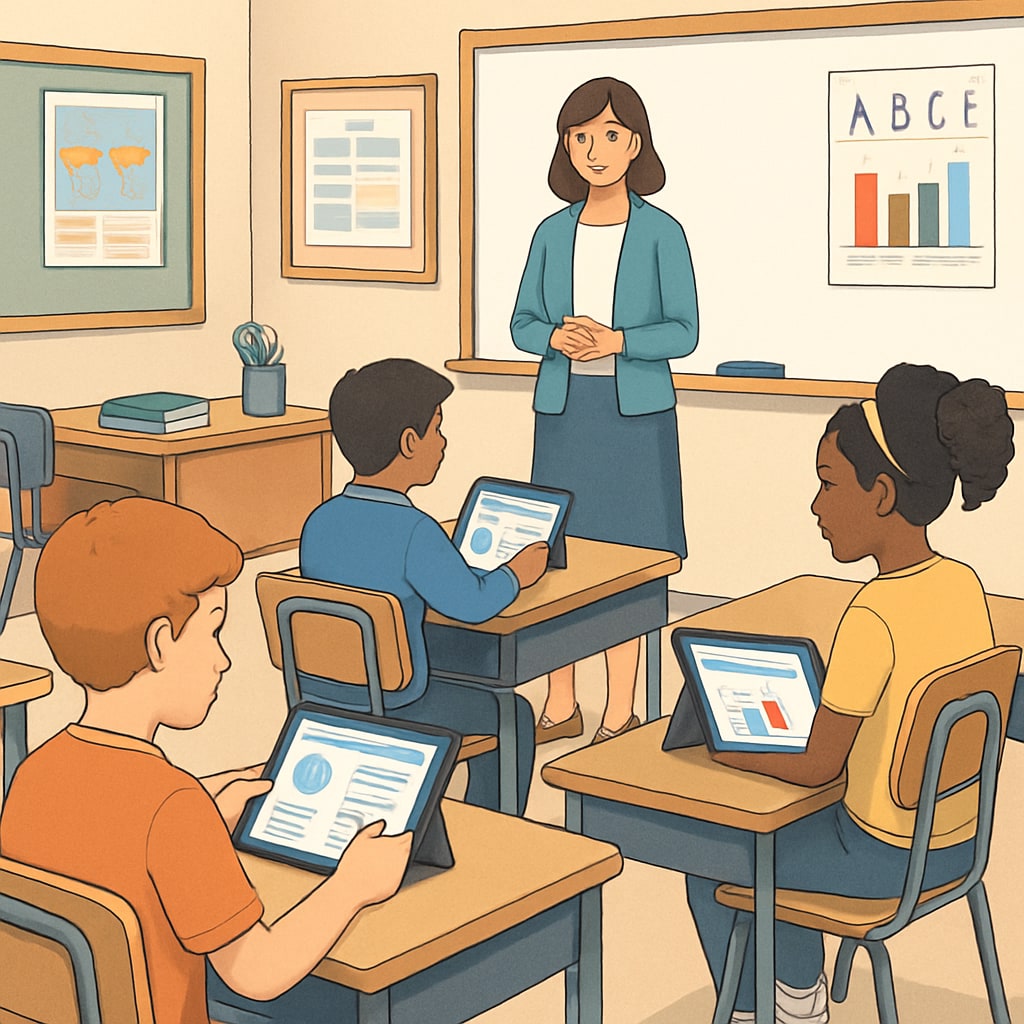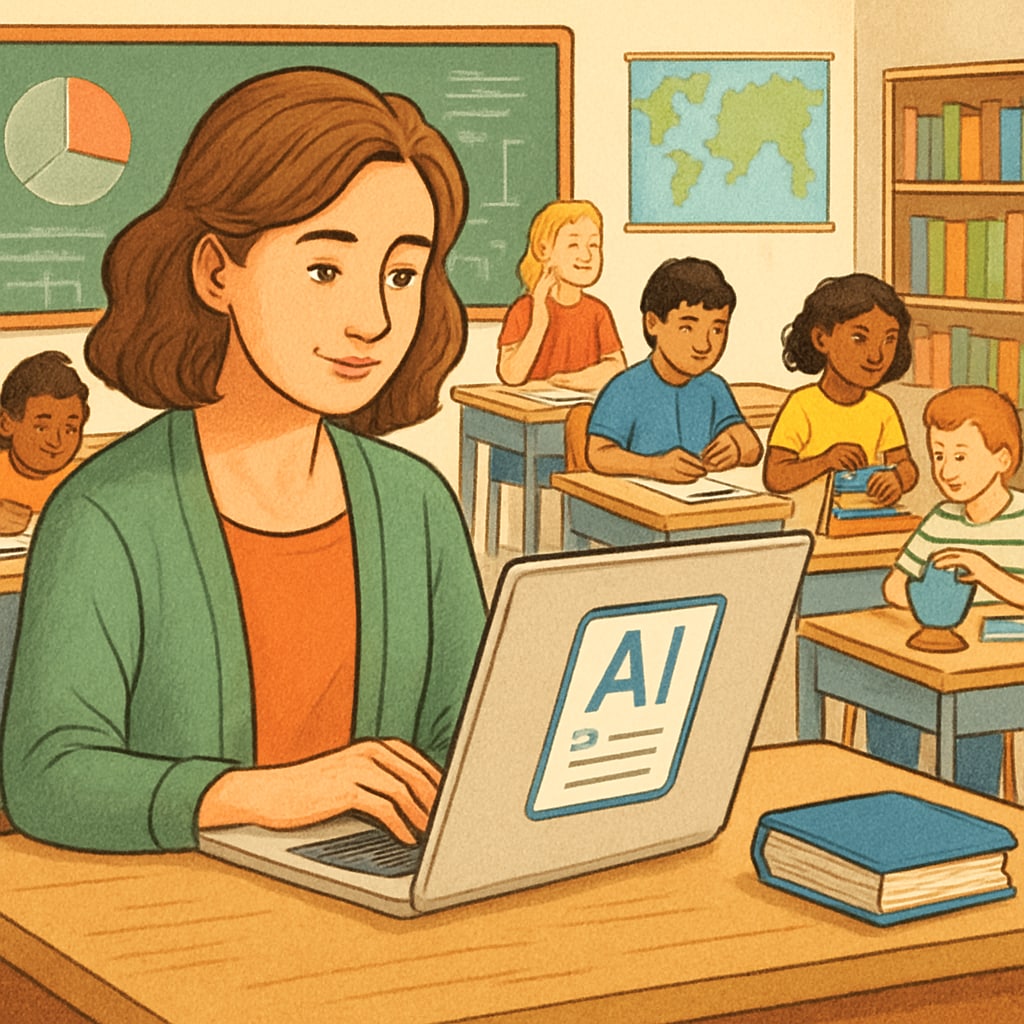Artificial intelligence (AI) is rapidly advancing and poised to create a significant future impact on education systems worldwide. In particular, K12 education stands to benefit immensely as AI reshapes teaching methods, personalizes learning experiences, and redefines assessment systems. Over the next decade, this transformation will provide educators, students, and parents with innovative tools to navigate a more intelligent education landscape.
Personalized Learning: A Tailored Experience for Every Student
One of the most profound ways AI will affect K12 education is through personalized learning. Unlike traditional teaching methods that often adopt a one-size-fits-all approach, AI-powered systems can analyze individual student data to adapt curriculum and teaching strategies to their unique needs. For example, platforms like adaptive learning software can monitor a student’s progress and identify areas where they struggle, offering tailored exercises to help them improve.
Such personalization enables students to learn at their own pace, fostering greater engagement and reducing the pressure to conform to a rigid timeline. Moreover, teachers can use AI-generated insights to better understand their students’ strengths and weaknesses, allowing for more targeted interventions.

Transforming Teaching Models Through AI Tools
AI is not only changing how students learn but also how teachers teach. Tools like virtual teaching assistants and AI-driven lesson planning software are already making their way into classrooms. Virtual assistants can handle routine tasks such as grading, freeing up teachers to focus on more meaningful interactions with their students. Additionally, AI can help educators develop dynamic lesson plans by analyzing curriculum frameworks and suggesting engaging activities tailored to their students’ learning levels.
Another emerging trend is the use of AI in facilitating hybrid and remote learning. For instance, AI-powered video conferencing platforms can provide real-time translations, enabling more inclusive education environments. Furthermore, AI tools equipped with natural language processing (NLP) can analyze classroom discussions, helping teachers gauge student participation and understanding.

Revolutionizing Assessment and Feedback Systems
Traditional assessment methods, such as standardized testing, have long been criticized for their inability to capture a student’s true potential. AI offers an alternative by enabling ongoing, formative assessments that provide real-time feedback. Tools like intelligent grading systems can evaluate not only multiple-choice answers but also essays, projects, and even creative work through advanced algorithms.
In addition, AI can reduce biases in grading by ensuring consistency and fairness. For example, machine learning models can evaluate student responses based on predefined rubrics, eliminating subjective judgment. This shift toward data-driven assessment will empower teachers to focus on holistic student development rather than simply preparing them for exams.
Potential Challenges and Ethical Considerations
Despite its many benefits, the integration of AI in K12 education comes with challenges. Privacy concerns are among the most pressing issues, as AI systems often require access to sensitive student data. Schools and developers must prioritize data security and ensure compliance with regulations like GDPR and COPPA.
Additionally, the reliance on AI tools raises questions about equity. Not all schools have the financial resources to implement advanced AI technologies, potentially widening the gap between well-funded institutions and underprivileged ones. Addressing these disparities will be crucial to ensuring that AI benefits all students, regardless of their socioeconomic background.
The Road Ahead: Preparing for an AI-Driven Future
The next decade will undoubtedly see AI become an integral part of K12 education. To fully harness its potential, educators, policymakers, and technologists must collaborate to develop ethical, inclusive, and scalable solutions. By doing so, AI can help create a more equitable and effective education system that prepares students for the challenges of the 21st century.
As we move forward, the role of AI in education will continue to evolve. From personalized learning paths to advanced assessment tools, the possibilities are endless. However, thoughtful implementation and a commitment to addressing ethical concerns will be key to ensuring that this technological revolution benefits everyone.
Readability guidance: The article maintains short, digestible paragraphs and uses transitions like “for example,” “in addition,” and “as a result” to ensure a smooth reading experience. Key points are summarized under subheadings, and technical terms are explained in simple language. Images are strategically placed to complement the content.


